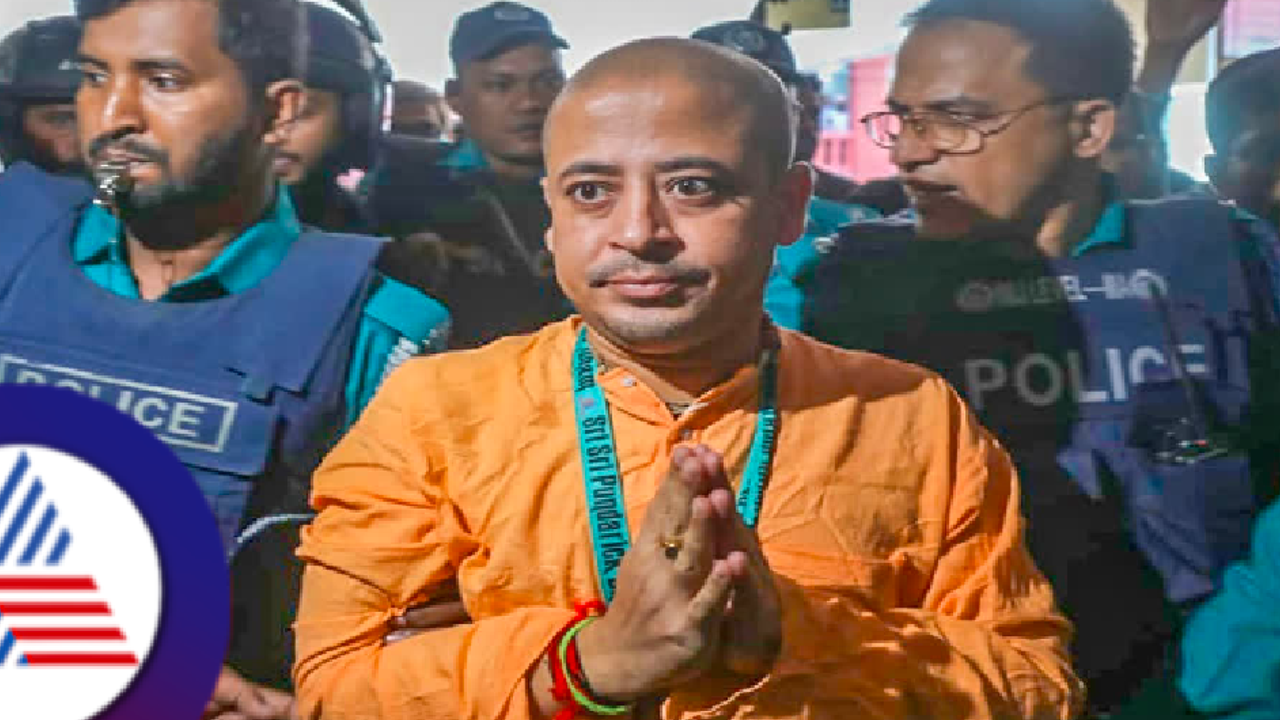A Bangladesh court today granted bail to Hindu priest and former ISKCON leader Chinmoy Krishna Das in a sedition case. He was arrest over remarks against the country’s constitution and national symbols.
A Bangladesh court on Wednesday granted bail to Chinmoy Krishna Das, a former leader of the International Society for Krishna Consciousness (ISKCON), in a sedition case that has sparked tensions across religious and political lines. The decision, reported by The Daily Star, comes weeks after his arrest on allegations of making derogatory comments against the country’s constitution and national symbols.

Chinmoy Krishna Das, who previously held a leadership role in ISKCON Bangladesh, was accused of delivering speeches that allegedly undermined Bangladesh’s sovereignty. He had distanced himself from active leadership within the organisation but continued to command influence in certain devotional circles. His arrest drew strong condemnation from Hindu organisations and minority rights groups, who claimed the case reflected a broader pattern of intimidation against the Hindu community.
Chinmoy Krishna Das's arrest
Das was arrested at Dhaka’s Hazrat Shahjalal International Airport and later sent to jail after a Chattogram court denied him bail. His detention triggered unrest in Chattogram, where violent clashes broke out, leading to the death of a lawyer during protests. The sedition case, filed on October 30 at Kotwali Police Station, named 19 individuals, including Das, and accused them of disrespecting Bangladesh’s national flag during a rally of the Hindu community in Chattogram’s New Market area.
In a related move, Bangladeshi authorities ordered a 30-day freeze on the bank accounts of 17 individuals linked to ISKCON, including Chinmoy Krishna Das, intensifying scrutiny of the organisation’s activities.
Strained India-Bangladesh ties
Diplomatic relations between India and Bangladesh have come under visible strain since the ouster of Prime Minister Sheikh Hasina in August and the formation of an interim government under Nobel laureate Muhammad Yunus. India has expressed concern over rising attacks on minorities, especially Hindus, in Bangladesh.
Reports of increased violence against Hindu communities—ranging from vandalism of temples to physical attacks—have continued even after the change in government. New Delhi is reportedly monitoring the situation closely, especially amid concerns over religious freedoms and the treatment of minorities in Bangladesh.


